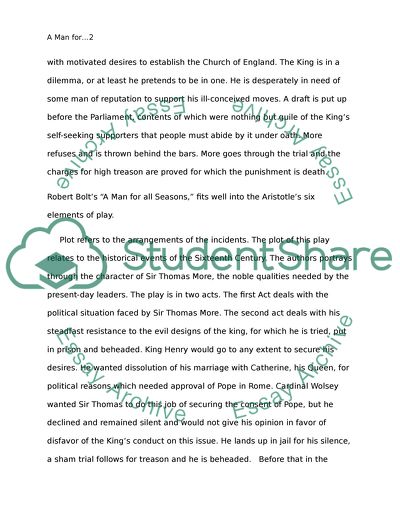A Man for All Seasons by Robert Bolt Essay Example | Topics and Well Written Essays - 750 words - 1. Retrieved from https://studentshare.org/visual-arts-film-studies/1439895-a-man-for-all-seasons-by-robert-bolt
A Man for All Seasons by Robert Bolt Essay Example | Topics and Well Written Essays - 750 Words - 1. https://studentshare.org/visual-arts-film-studies/1439895-a-man-for-all-seasons-by-robert-bolt.


